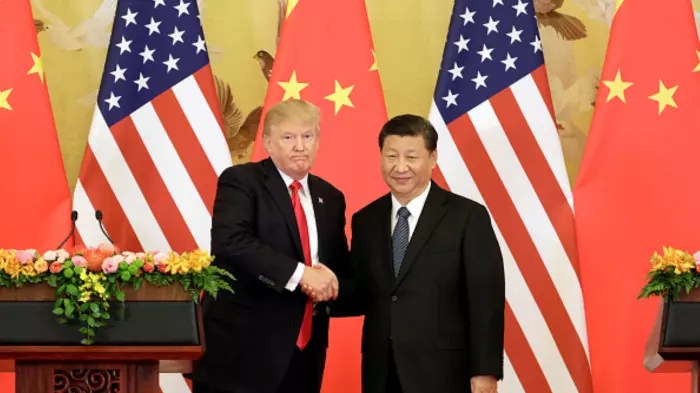New Zealand’s top public servant has a lot of admiration for the private sector – but that only takes him so far.
“Generally, when I have a problem I start with what the private sector does and I come back from that,” says public service commissioner Peter Hughes. “I adjust it for the public sector.
“But the public sector is different in some regards.”
In his role as employer of 36 of NZ’s public sector chief executives, he sets their performance expectations, assigns them multiple “whole of government” responsibilities outside their own agencies, and assesses their performance at the end of each year.
The Public Service Act passed last year has the commission leading agencies on issues that a large corporation might put in its human resources or corporate services function – diversity and inclusion, cultural competence, and ethics, for example.
Hughes puts a high priority on the act’s mandate that he “promote integrity, accountability, and transparency throughout agencies in the State services, including by setting standards and issuing guidance”.
Hughes’ wider responsibility and authority over the public service’s outputs is limited in that framework.
“Individual chief executives by legislation are responsible for the performance of their agencies. I'm the person who appraises their performance, sets expectations, all of that,” Hughes said in an interview with BusinessDesk.
“Governments get their money by authorisation of parliament. And there's a whole parliamentary process around it, including select committee hearings.” But that form of accountability “is actually quite narrow,” Hughes said. “It is largely focused on the money.”
A public sector CE might be meeting every objective performance target and still fall short, he said. “That can be as tight as you can make it, and it won't be enough.
“Because this is where the public sector is different. You have to do all of that in a public context, in a political context.
“I can't give you any examples that won't get me in trouble. But my experience as commissioner is that most often when things go wrong, it tends not to be the performance of the agency. It tends to be the agency's ability to manage itself in its context, in maintaining the trust and confidence of key stakeholders, ministers, citizens.”
Hughes referred in this context to the Ombudsman’s current inquiry into the Department of Corrections, which has “huge coercive power. They can lock you up, they can take away your liberty, they can constrain you, restrain you…
“Citizens say through Parliament in our system ‘that's okay, we have to do that, and we support that’. But that social licence will disappear overnight if I'm running the Department of Corrections in a way that people are mistreated or abused."
Business-rational v politics-rational
In the private sector, “it's hard, but it's more straightforward because all of the information you need for this stuff exists in the marketplace. I'll have the share price, I'll have the margin, I'll have a profit/loss, I'll have a market penetration - all that information comes at you from the market.
"In the public sector, it's less business-rational and more politics-rational. I need public service chief executives that can read and manage that.”
In addition, in the public sector “the goods and services we provide generally are unique”.
The Public Finance Act requires these outputs to be defined and measured in the absence of market disciplines.
It’s not just the public service’s outputs that are unique, Hughes said. “The outcomes we're trying to achieve definitely are unique. And so the struggle actually is defining measures that are adequate, especially at the outcome end of things.”
In general, the outputs that taxpayers pay for and how they are meant to contribute to society’s outcomes are agreed between ministers and their departments - with help from the Treasury in the budget process - and approved and then monitored by Parliament, with help from the Auditor-General.
Hughes’s key contribution is as employer of the CEs running those departments – and he prefers to keep much of that part of CE accountability in the dark. The commission has declined BusinessDesk’s request for copies of Hughes’s performance agreements or letters of expectations with key chief executives. BusinessDesk has asked the Ombudsman to review this decision under the Official Information Act.
Motivation supports accountability
Why not more transparency about what public sector CEs are expected to achieve?
“There are two things,” Hughes said. “There's privacy. And actually I need to get people to want to do these jobs.
“You know, I need to get really good people to come and do these jobs. And at the moment, the stakes are pretty high.
“Here's another thing. In the private sector, some of the things that you ask people to do at work are not particularly motivating. You come and do them because you get paid to do them, and you get a reasonable salary and reasonable conditions and stuff but they are not particularly motivating tasks.
“The thing that we have – and this is where I disagree with some commentators a little bit – the thing that we have in the public service is high levels of intrinsic motivation. People are actually here because they want to be. They care and they want to make a difference. And they're really passionate about that.
“That's a huge gift that you can leverage in a performance sense.
“So we don't need to run these organisations like widget factories, because we've got this high level of motivation.”
Indeed, a commission “census” completed this year by 40,000 public servants found that 84% are strongly motivated to stay in their jobs because of their positive impact on society.
“What these chief executives really care about is making a difference, and their reputations [are] in terms of that.
“And in the public sector, they're all on fixed term contracts. They get one shot at it.
“No one else in New Zealand is on a fixed-term contract for an ongoing job, by law. It's illegal. But all the public service chief executives are, and now the Crown entity chief executives.
“So the stakes are quite high personally. And they have to manage all of this in a political frame.
“You have to have the agility and the ability to read that context and manage it.”
Not too much transparency
But how would CEs’ ability to perform, or the commissioner’s ability to attract them, be compromised if their performance expectations are released?
Hughes replied that most CE accountability information is already made public – spending and outputs performance is in departmental annual reports, for example.
What’s withheld is just “the stuff that's in the agreement with me".
"I'm not happy to tell you the detail of it because it's just going to turn into a whole lot of invasive and unfair scrutiny of those individuals.”
Nonetheless, Hughes gave some examples of how previous performance might affect his expectations of a CE in the future. For example, when the National party obtained budget information in 2019 from an insecure Treasury server, “you can imagine” that was mentioned in the incoming chief executive’s performance expectations.
“If you've got an agency where there's been issues and they've lost trust and confidence, I will expect that chief executive to take strong leadership in building that back – you know, like Oranga Tamariki, for example.
“So I'm happy to describe it in those terms. It gets problematic when we become granular and specific to individuals.”
Without more specificity, how do Parliament and the public hold the commissioner accountable in his role as the employer of public service CEs?
“I'm accountable to the minister for the public service,” Hughes said. “And he is held accountable by the parliament. We've got again all that normal parliamentary accountability stuff. I front select committee, I report and all the rest of it.
“I mean, it's pretty clear when a bit of the public service is not working. Like if we've got queuing in any service, any part of the public service, that'll be in the national media within hours.
“I've been commissioner for five years. And I've never once had the need to talk to a public service chief executive about their motivation, or their work ethic, or their work hours or anything like that. Not once.
“I've had occasion to talk to them about working too hard, too many hours, work-life balance, but not once about any of that. It's just not an issue. People feel very accountable.
“You wake up in the morning, and you read the media. I get my media monitoring four times a day for the whole public service. And this is just the media monitoring. It will be four or five screens, six screens of stuff. I'm all over that, and every chief executive will be as well.”
Put away the gallows
In agreement with Auditor-General John Ryan, Hughes favours a learning approach to accountability that encourages risk-taking.
“I don't want to see dumb things, and I don't want to see dumb things over and over again.
“But if you're not trying to change stuff, you're not taking risks. And if you're not taking risks, you won't make mistakes. That's not what I want. I want risk awareness, not risk aversion.
“We have to be risk aware, much more so than in the private sector. It's just the name of the game. But that's not the same as risk aversion.”
Hughes says he won’t defend or deny things in the public sector that aren’t up to scratch. “My mantra to the chief executives when things go wrong is ‘own it, fix it, learn from it'.
“Accountability is for when things go really, really wrong and actually there needs to be a consequence. You do get a huge distance by creating an environment where people will take measured calculated risks, and we learn from that.
“And so, you know, every time something goes wrong, is there a summary execution? No.”
Next: New public service flexibility to deal with harder problems
Do you know something we should know? Email BusinessDesk's public sector investigation team: [email protected].















